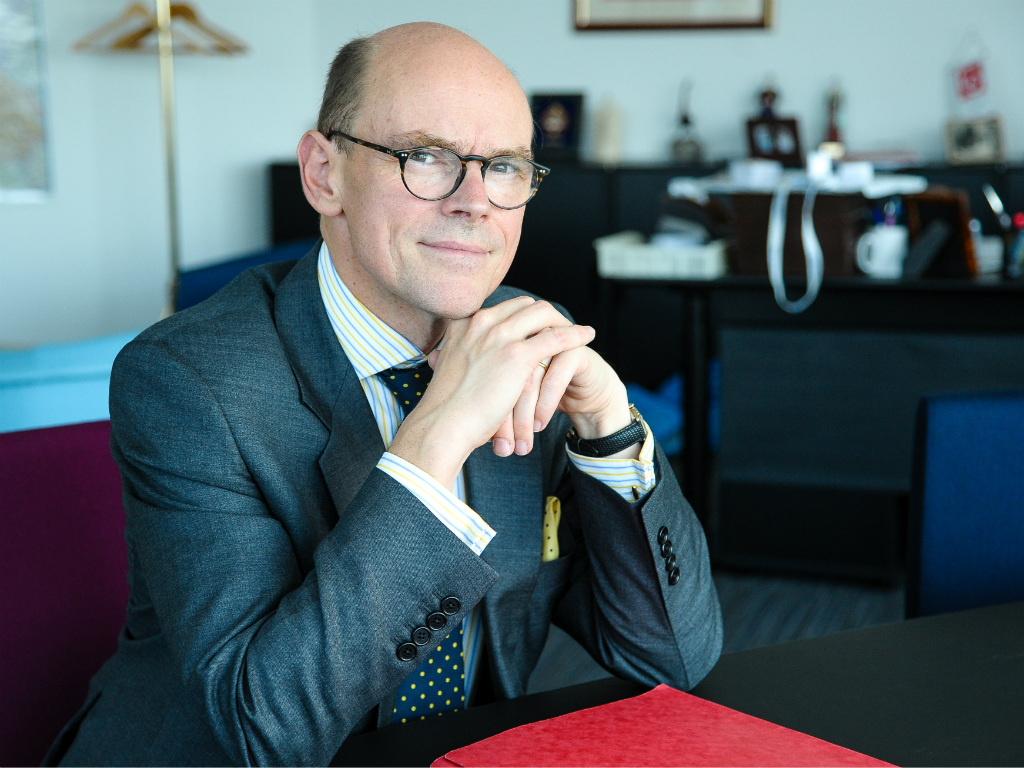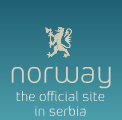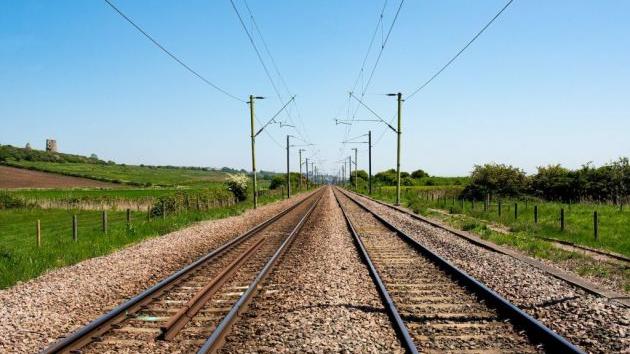Arne Sannes Bjornstad, Ambassador of the Kingdom of Norway to Serbia ŌĆō SerbiaŌĆÖs EU perspective attracting Norwegian companies
 Sunday, 31.12.2017.
Sunday, 31.12.2017.
 09:55
09:55

Bjornstad adds that he hopes that EU membership will help address certain problems Serbia currently has.
To that end, Norway will look into how it can assist Serbia in e-governance and cyber and information security, but also other aspects of this that can help Serbia caching up with EU member states.
eKapija: How do you see the current state of the economic and the political relations of our two countries?
ŌĆō A lot has happened since 2000, and especially the last 10 years. Important investments have been made by the Norwegian companies Telenor, Rapp Marine and UBConnect in Serbia, and by McCann Serbia in Norway. There is however a huge unexploited potential in trade in goods and services.
Politically as well, we are moving closer together. The visits to Oslo of prime minister Brnabic in November and of deputy prime minister/minister of foreign affairs Dacic in May, as well the two visits of the Norwegian minister of foreign affairs to Serbia this year shows this.
We have some military cooperation, especially linked to military medicine and UN peacekeeping operations, and there is some cooperation on academic level as well as some cultural exchange.
eKapija: Norway is one of SerbiaŌĆÖs most important trade partners. According to your data, what did the trade between Norway and Serbia amount to last year? What did Serbia import the most and what did it export the most to Norway?
ŌĆō According the Statistical Office of Serbia, the value of Serbian export to Norway in 2016 was EUR 19 million, with raspberries, honey and parts for motor vehicles being the top three products. Norwegian export to Serbia amounted to EUR 35 million, chemical active organic compounds, salmon and polyethylene being the main products.
It is moving most quickly in engineering, but there should good possibilities in food too. Green technologies as well.
eKapija: In the past period, there have been frequent Norwegian-Serbian business forums. What are the concrete results of these gatherings?
ŌĆō I believe there is a better understanding of Serbia in the Norwegian business community, both when it comes to challenges and possibilities. At the same time, they contribute to make Serbian politicians and business leaders aware of the obstacles to attracting further Norwegian investments.
eKapija: How many Norwegian companies do currently do business in Serbia How present are Serbian companies in Norway?
ŌĆō We most probably do not know about all of them, most probably, but we do know about approx. 15 companies ranging from Telenor to small companies.
Except for McCann Serbia, which through its subsidiary is a big player in the marketing/PR market in Norway, there is very little presence of Serbian companies in Norway. Unfortunately.
eKapija: How often do Norwegian businessmen turn to you for advice as to how to reach the Serbian market and how do you present Serbia as an investment destination to potential investors?
ŌĆō Difficult to say how often. It is very much cyclic. We get requests every month, some however from companies coming back to us after previous requests.

And I have the impression that we now see a new interest in Serbia from Norwegian companies. We have one new confirmed investment this autumn.
However, some investors donŌĆÖt contact the embassy. This is a good sign. It means that they donŌĆÖt need the assistance of the embassy, which usually should not have a role in developed market economies. However, it means that we are not aware of their investments.
Recently I met a Norwegian businessman while boarding a flight to Serbia who told me he works for a small Norwegian software company with activities in Serbia, unbeknownst to the embassy. I am sure there are more like him.
eKapija: What are the biggest advantages of Serbia when it comes to attracting investments? What are its flaws and in which areas can it improve?
ŌĆō The cost/quality of labor ratio is probably the most important. Serbia is seen as a good production base and a promising market, but for Norwegian businesses it is the perspective of EU membership which really is the game changer. This is because of SerbiaŌĆÖs entry into the (EU/EEA) single market will both facilitate export to EU/EEA countries and ŌĆō as important ŌĆō create more predictable conditions by solving some of the issues investors are now facing.
EU membership will also help reduce the security concerns, which means that certain technologies cannot be used in Serbia and thus some services have to be supplied from a NATO or EU member state while other activities can be done in Serbia.
Among the other concerns we get, I can mention the not very transparent system of public procurement and public subsidies as well as other kinds of support given to companies already established on the Serbian market.
We also get complaints about the great number of ŌĆ£hidden taxesŌĆØ and regulatory unpredictability, the recent mandatory and expensive membership of the Serbian Chamber of Commerce as of last year being an example of both.
eKapija: Norway is very active in our country in various fields, from education, social inclusion, culture, to ecology and other areas. Could we announce any new activities of the Embassy in Serbia?
ŌĆō I expect digitization, one of the priorities of the current Serbian government, to be the big, new priority next year. Serbia is lagging behind in this, while Norway is in the forefront.
We will look into how we can assist Serbia in e-governance and cyber-/information security, but also other aspects of this that can help Serbia caching up with EU member states.
eKapija: Although not a member of the EU, Norway actively supports Serbia on its way to joining the EU. How would you rate the results Serbia has made so far in that respect?
ŌĆō The progress the last few years are impressive. A lot remains however to be done to fulfill the conditions for membership, but as long as the political will is there I believe this progress towards membership within the timeframe indicated by the EU commission is realistic.
eKapija: Increasingly more citizens of Serbia have been leaving for Norway in the past years looking for a better job. Are there statistics about the precise number of people and in which fields there is a deficit of workforce in Norway?
ŌĆō According to the Norwegian Central Bureau of Statistics, there are approx. 7 000 persons residing in Norway born in Serbia or with at least one parent born in Serbia. The labor market is constantly changing, and it is difficult to get work permit for non EU citizens for some kind of professions.
Engineering and medical professions seems to be the most popular among recent emigrants to Norway, but given the common EU/EEA labor market deficits are usually quickly filled up by those not requiring a work permit.
Milos Vlahovic
 Ambasada Kraljevine Norve┼Īke u Beogradu
Ambasada Kraljevine Norve┼Īke u Beogradu
 Yettel d.o.o. Beograd
Yettel d.o.o. Beograd
 UBConnect Int doo Novi Beograd
UBConnect Int doo Novi Beograd
 McCann doo Beograd
McCann doo Beograd
 Privredna komora Srbije
Privredna komora Srbije
Most Important News
06.04.2024. | Agriculture
Preconditions for Placement of Fresh Blueberries and Dried Plums in Chinese Market Secured

16.04.2024. | News
Jovan Ciric, Leasing Director Retail MPC Properties ŌĆō MPC Echo symbolizes our desire for good ideas and innovative endeavors to spread freely and bring about positive changes

16.04.2024. | News
10.04.2024. | Finance, IT, Telecommunications, Tourism, Sports, Culture
Creative Industry ŌĆō What This Serbian Economy Sector Worth EUR 2 Billion Encompasses

10.04.2024. | Finance, IT, Telecommunications, Tourism, Sports, Culture
23.04.2024. | Construction, Transport
Tender for first section of Belgrade-Nis fast railroad from Velika Plana to Paracin announced

23.04.2024. | Construction, Transport
16.04.2024. | News
Economy Fair in Mostar opens ŌĆō 26 companies from Serbia exhibiting

16.04.2024. | News
22.04.2024. | Industry, Transport
Serbia to develop project of ŌĆ£flying taxisŌĆØ for EXPO with Airbus ŌĆō Signing of memorandum announced

22.04.2024. | Industry, Transport


 Izdanje Srbija
Izdanje Srbija Serbische Ausgabe
Serbische Ausgabe Izdanje BiH
Izdanje BiH Izdanje Crna Gora
Izdanje Crna Gora


 News
News






